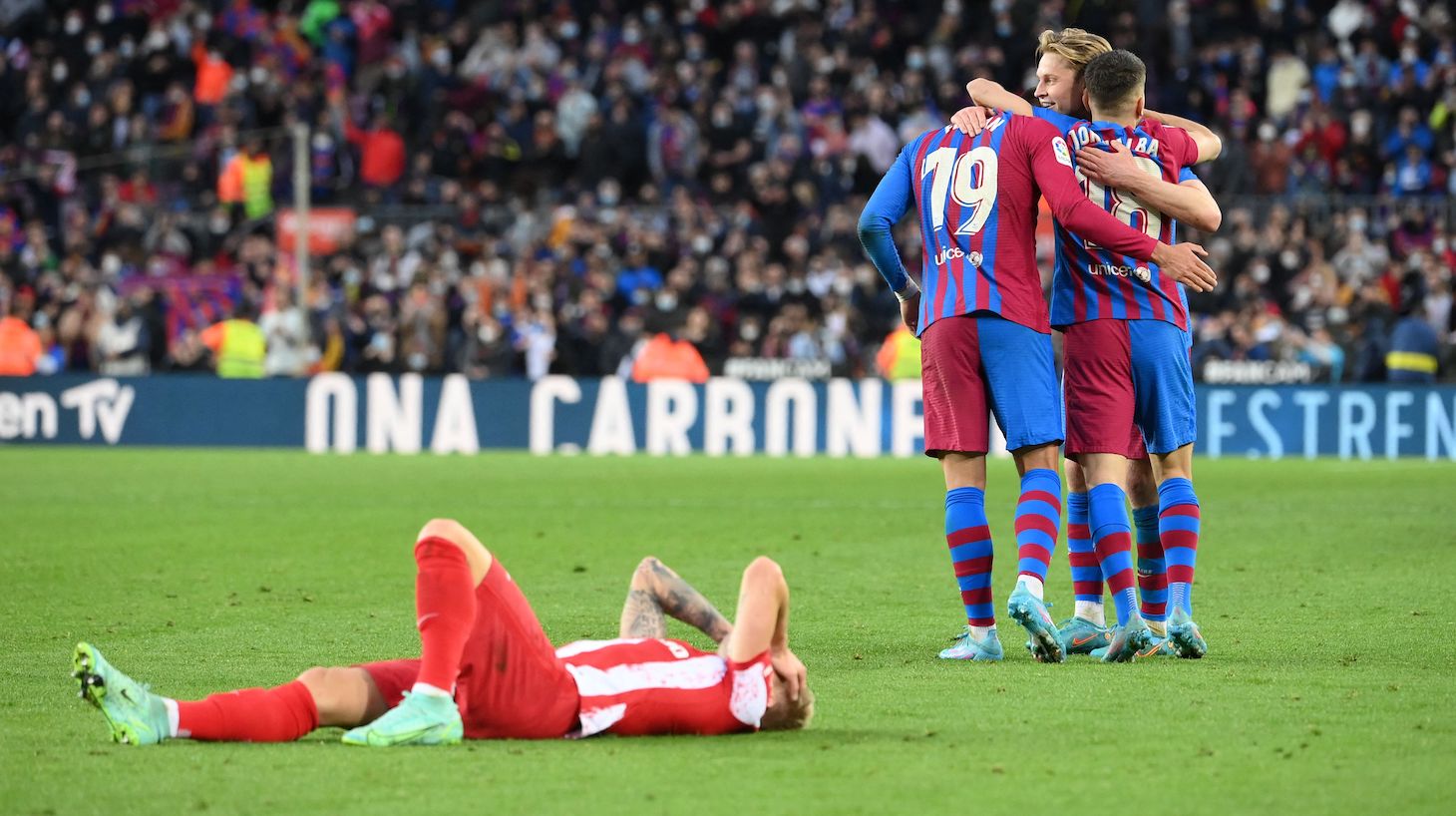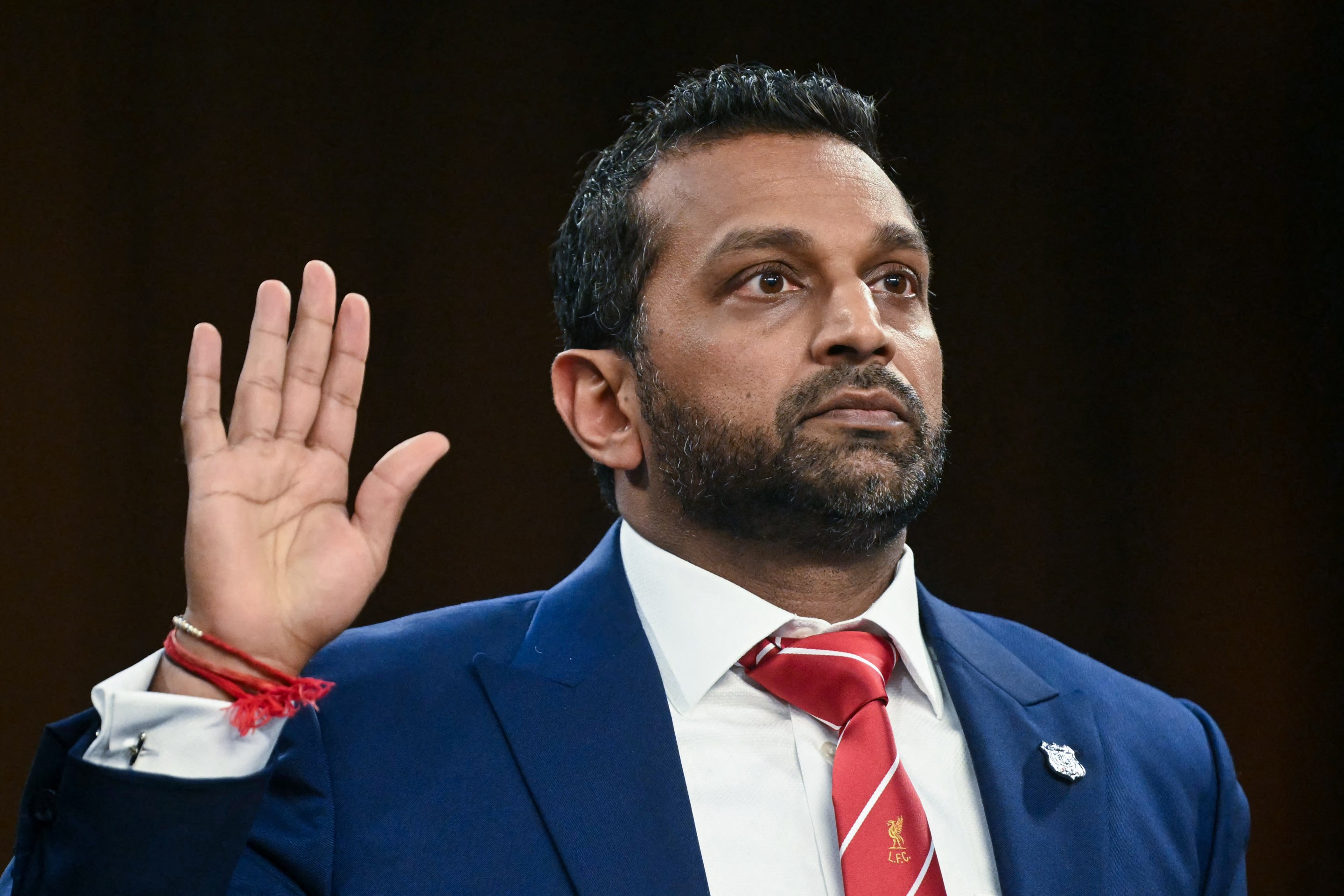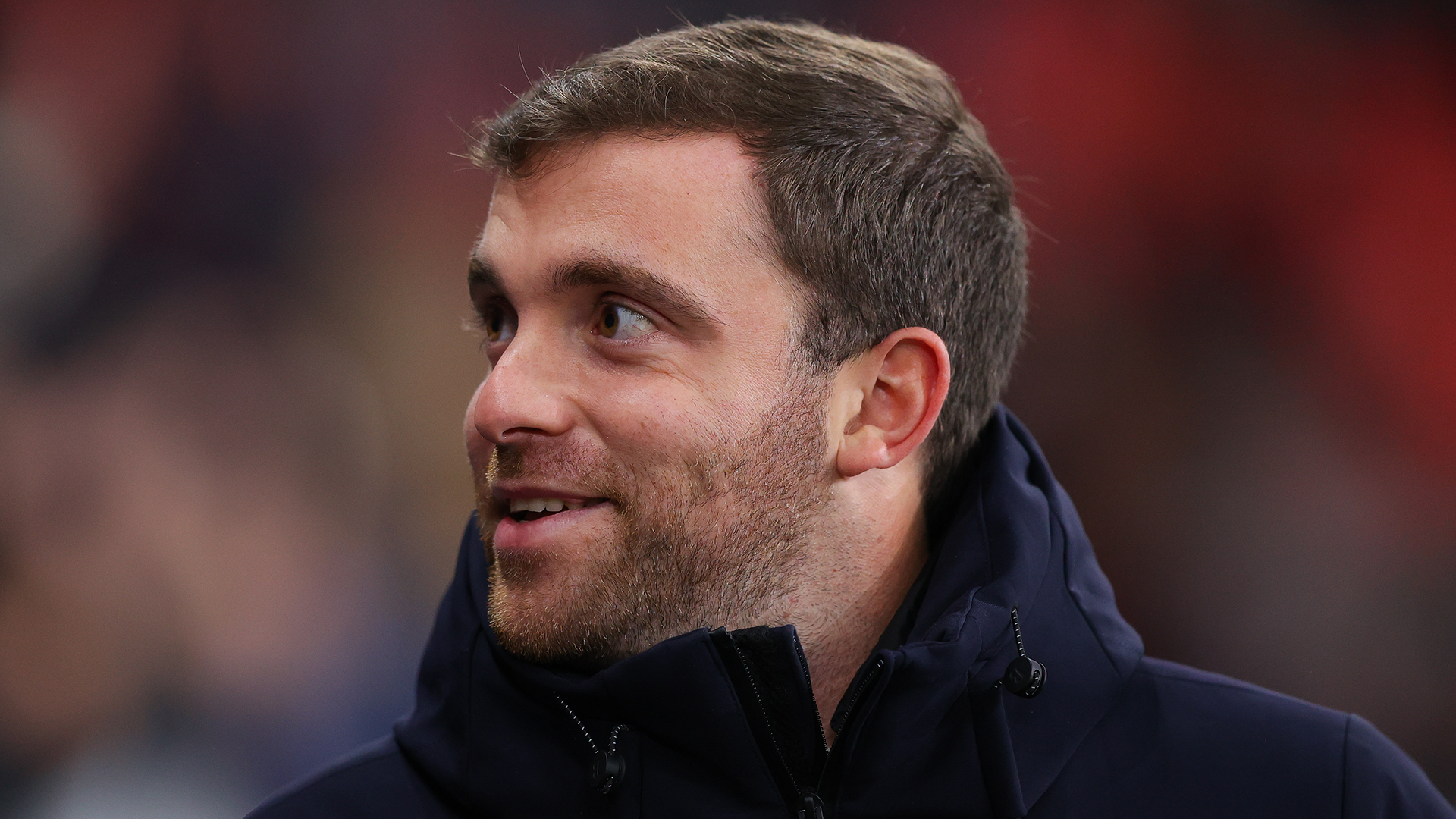It sounds a little funny to say, but this season it's true: If you let Barcelona beat your ass, you're seriously fucking up. Such was the case on Sunday, when Atlético Madrid allowed the crisis-afflicted Catalans to trample all over them by a score of 4–2. The loss saw Atleti hand its all-important fourth spot in the table to Barça. In exchange, the winners passed the losers the baton as the most alarmingly dysfunctional of La Liga's big teams. The season is still only just past the halfway point, so there will be plenty of opportunities for that baton to change hands again. Nevertheless, barring what now looks like an unrealistic turnaround, Atlético's campaign will be haunted by one question: What on earth went wrong?
If you're being cheeky, there is a simple way to answer that question: Everything. Last season was another heroic one that saw the Colchoneros lift the second league title of manager Diego Simeone's legend-making tenure. In the summer, the team pulled off a stunning throwing of the gauntlet in the transfer window by signing a handful of seemingly perfect pieces (Rodrigo De Paul, Matheus Cunha, the returning Antoine Griezmann) and built what looked like the strongest roster in Spain by a good margin. Since then, nothing has gone to plan.
Key players (Antoine Griezmann, Marcos Llorente) have missed significant time due to injuries. Stalwarts of prior successful seasons (Jan Oblak, José María Giménez, Mario Hermoso) have seen their level dip. Players who'd been signed in recent years to ensure the club's longterm future (João Félix, Renan Lodi) haven't performed as expected. Most worryingly, Simeone himself, the mastermind of this unprecedented era of greatness, has not been able to work his usual magic. For the first time, Simeone's Atlético is less than the sum of its parts. Rather than competing for the title they were just a few months ago considered favorites for, they now will have to scrap to even finish in the Champions League places.
The core aspect of cholismo, the defining trait Cholo Simeone's teams, has been tough, angry defending. Scoring against a Simeone team is usually like trying to fish a $100 bill out of a wasp nest; the reward is too big to completely ignore, but even success—by no means guaranteed—hardly feels worth it by the end. That defensive solidity is the most glaring absence in this current Atleti. Presently the team ranks 12th in La Liga in goals allowed with 30 in 22 matches. They have a mere three wins from their last 10 matches in all competitions. If you throw out the 5–0 win against third-division Rayo Majadahonda in the Copa del Rey, Atleti has given up 18 goals in that span, six more than they've scored. Barcelona hadn't scored four goals in a single match for six months until they did it with ease against Atlético on Sunday. This is not what cholismo is supposed to look like.
It would be easy to lay all the blame for Atlético's poor season on its defensive vulnerability, but that wouldn't be fair. Yes, the defense is bad. The team lacks a single elite outfield defender, and both the midfield and forward lines fail to shield the defense in a way no Simeone team before has permitted. However, the bigger problem than the defending itself is the team's inability to play any other style that might alleviate its lack of defensive talent by leaning on its abundance of high-quality attackers.
Atlético currently has one of the best and deepest attacks in the whole world. They have Griezmann, who, before getting hurt, had shaken off the rust he'd built up in Barcelona and once again looked like a superstar. They have Félix, who, even after a couple disappointing seasons in Madrid, is still to me one of the three most talented young players in Europe. They have Cunha, who very well could be Brazil's starting striker by the time the World Cup comes around. They have Luis Suárez, who is old and kind of bad but will still score every time you tee him up. They have Yannick Carrasco and Ángel Correa, who embody everything a Simeone forward needs to succeed—commitment, selflessness, determination, self-sufficiency. That's six players—not even counting Thomas Lemar and Marcos Llorente, both of whom can play on the forward line and have been two of Simeone's most reliable foot soldiers of late—all of whom possess oodles of attacking ability, most of whom combine that with a work ethic uncommon to flair players.
Clearly this is Atlético's strongest unit, the one ideally you'd want the team to maximize in its playing style. Yet Simeone has been unable to reinvent his typical strategy and implement a gameplan that treats the ball like a weapon to wield rather than one to disarm. Instead, the team has been stuck in no man's land, playing a defensive game with players who don't defend well, keeping its best players far from the end of the pitch where they could do the most damage.
The most pressing question at Atlético, then, isn't what is wrong, but rather who can fix it. For the first time in over a decade, the answer might not be Simeone. By force of personality, guts, passion, and tactical acumen, the Argentine coach has revolutionized Atlético Madrid, imbuing it with his spirit and vision of the game. In doing so, he has led the club to heights never before seen. That transformation from laughing-stock to formidable giant was arguably completed last summer, when Atleti entered the season not as long-shots or even dark horses, but as full-on favorites to defend their title as Liga champions. In assembling this champion-quality squad, the club acquired players who better fit the more attack-minded game typical of champion-quality teams, rather than the scrappy, defensive, underdog style of cholismo.
Maybe Simeone will figure it all out, and will either find a way to fortify the defensive aspect that gives cholismo its steel, or will enter a new phase of attacking adventurousness to compliment the kind of squad this new Atlético can afford. Anyone with a romantic streak must hope that's the case. But maybe Simeone won't be able to manage that trick, or maybe he won't want to try, and maybe the Atlético Madrid that Simeone himself made possible will need a new leader to guide it through these uncharted waters.






